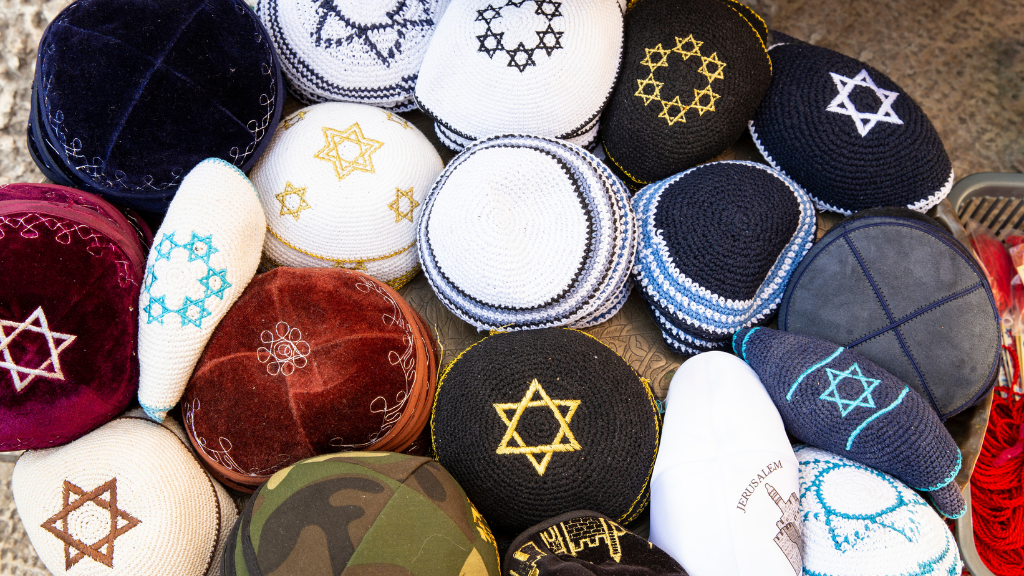Kippah – Signs of the Faith
In this series, ‘Signs of Faith’, objects that express Jewish faith are explained and discussed.
Jewish boys and men cover their heads. Orthodox men always wear a head covering. More liberal Jewish men do this less often, but at least during prayer, study and while eating. Often, a small round cap is used, the kippah, also known by its Yiddish name, yarmulke.
The use of the kippah is not a Biblical prescription. But several passages in the Talmud (the so-called Oral Teachings in Judaism) provide reasons for covering the head: “Cover your head, that the fear of Heaven will be on you.” The kippah reminds you that there is a Power above you. Therefore, a Talmudic scholar like rav Huna, the son of rav Yehoshua (4th century), claimed that he never walked more than four cubits with an uncovered head: “The Shechinah, the Divine Presence, is above my head.” Therefore, your doings and dealings and thinking should always be filled with awe for the Most High.
Since the Middle Ages, it has been the custom for Ashkenazi and Sephardi Jews to cover their heads outside the home. For men, as a sign of holiness, for married women as a sign of modesty. Wearing a kippah inside the home is a relatively young custom, going back only a century or so.
The skullcap is somewhat reminiscent of the calotte worn by Roman-Catholic clergy. Some even suppose that this might be the origin of the kippah. If this is true, there is a symbolic layer to it. In the Bible, priests had to cover their head. Again, according to the Bible, Israel is a nation of priests, and she is that on behalf of the nations. In this way, the kippah could be seen as a silent undermining of replacement theology.
There are kippahs of many different varieties. Often, you can tell, by the style of kippah, which branch of Judaism the wearer currently associates himself with. Orthodox men wear the black velvet kippah. Some Hasidic groups, however, wear large white yarmulkes. Even the form, round or rather angular, tells something about the origins of the wearer. In Israel, the knitted kippah (Hebrew: kippah serugah) became the mark of the religious Zionists. You often see yeshiva (Talmud academy) students in Jerusalem wearing a small flat, suede kippah.






